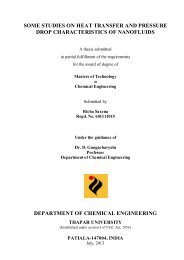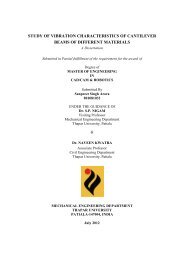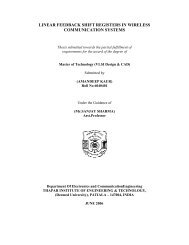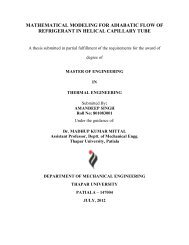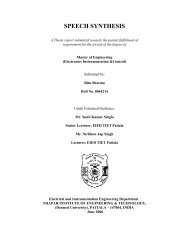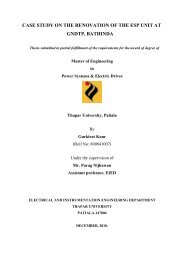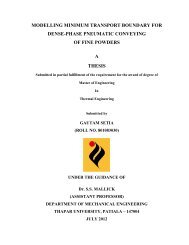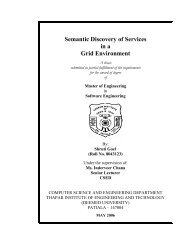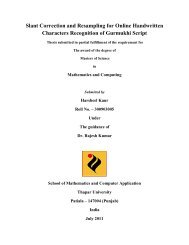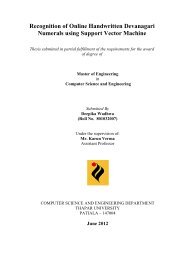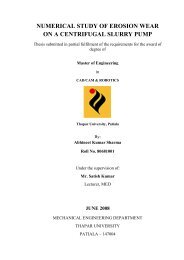from indigenous fermented foods and human gut ... - Thapar University
from indigenous fermented foods and human gut ... - Thapar University
from indigenous fermented foods and human gut ... - Thapar University
Create successful ePaper yourself
Turn your PDF publications into a flip-book with our unique Google optimized e-Paper software.
42<br />
Chapter II Review of Literature<br />
The ability of numerous LAB to produce one or more bacteriocin displays an<br />
important skill sustained over many generations. Bacteriocin production is advantageous,<br />
since these peptides inhibit the growth of bacteria competing for the same ecological niche<br />
<strong>and</strong> the same resources. This is supported by the fact that their inhibition spectrum is mostly<br />
narrow <strong>and</strong> most likely to be effective against related bacteria competing for the same<br />
nutrients (Drider et al., 2006). It appears that, by producing several bacteriocins belonging to<br />
different classes with different inhibitory spectra, LAB compensates their narrow spectrum.<br />
Lactobacillus plantarum C11 for example, produces two types of bacteriocins which have<br />
different target cell specificities (Anderssen, Diep, Nes, Eijsink <strong>and</strong> Nissen-Meyer, 1998).<br />
Moll et al. (1999) demonstrated that plantaricin EF shows high conductivity for monovalent<br />
cations, while plantaricin JK is more selective for anions. Consequently, having opposite ion<br />
selectivity, plantaricin EF forms pores with cation selectivity <strong>and</strong> plantaricin JK with anion<br />
selectivity. This may also help to overcome the development of resistance mechanisms in<br />
target organisms (Eijsink, Axelsson, Diep Dzung, Håvarstein, Holo <strong>and</strong> Nes, 2002).<br />
Table 2.6 Presents some examples of antimicrobial-producing organisms. (Fuller, 1992)<br />
Probiotic Compound<br />
Lactobacillus GG Wide spectrum antibiotic<br />
L. acidophilus Acidolin, Acidophilin, Lactocidin<br />
L. delbrueckii ssp.<br />
bulgaricus<br />
Bulgarican<br />
L. plantarum Lactolin<br />
L. brevis Lactobacillin, Lactobrevin<br />
L. reuteri Reuterin



